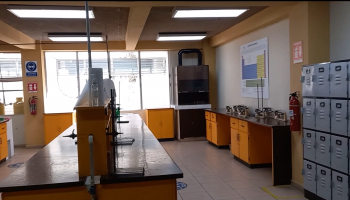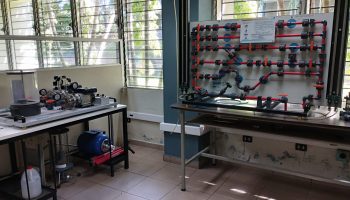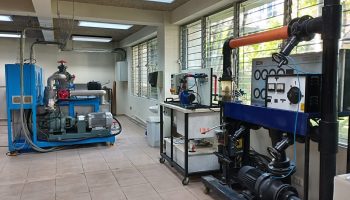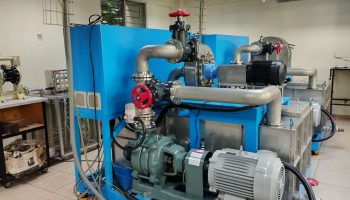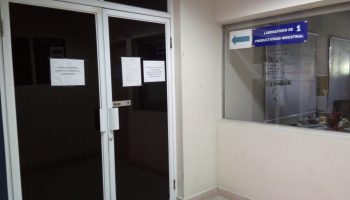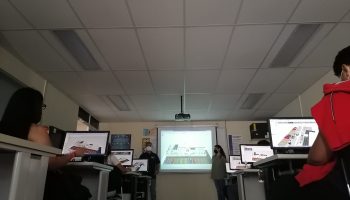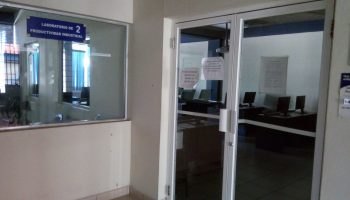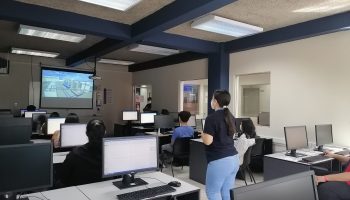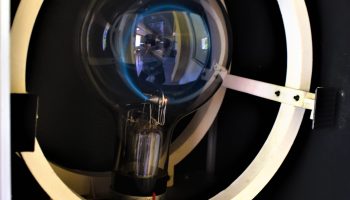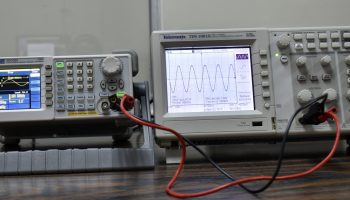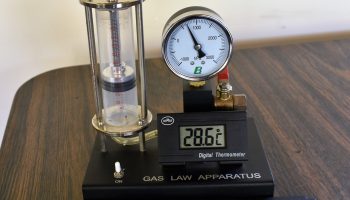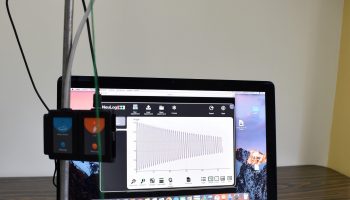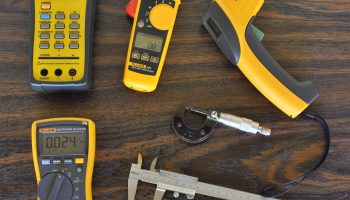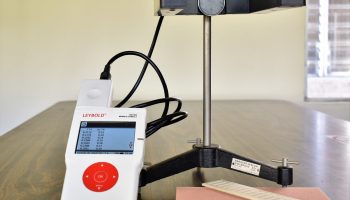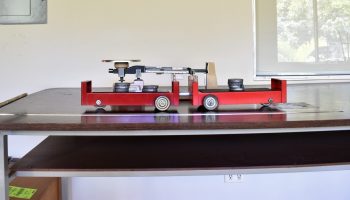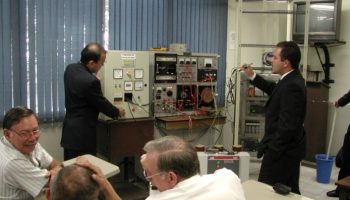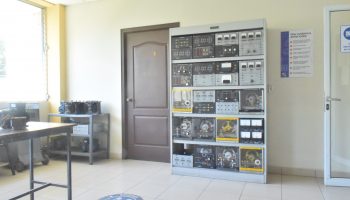Engineering Building
First Floor
On the first floor are located laboratories of General Chemistry, Fluid Mechanics, Hydraulic Machines and Hydroelectric Power Plants, Pneumatics and Oleohydraulics
Fluid Mechanics Laboratory
This laboratory has the necessary equipment and instruments to carry out the following tests, measurement of fluid properties (viscosity and density), measurement of hydrostatic forces on flat surfaces and buoyant forces, pressure measurement with Bourdon manometers and U-tube, flow visualization, measurement of velocities and flows, measurement of forces by the impact of a jet (linear momentum equation), calculation of pressure losses in flow in pipes and passage elements (valves, elbows, reducers, etc.)
Laboratory of Pneumatics and Oleohydraulics
This laboratory has the necessary equipment and instruments to carry out the following tests: operation of single and double acting hydraulic cylinders. operation of hydraulic directional, pressure and flow valves, operation of hydraulic motors, spur gear pump operation, operation of pneumatic circuits, operation of electro-pneumatic circuits controlled by relays, operation of electro-pneumatic circuits controlled by logo.
Laboratory of Hydraulic Machines and Hydroelectric Power Plants
This laboratory has the necessary equipment and instruments to carry out the following tests: operation of a centrifugal pump, centrifugal pumps connected in series and parallel and an axial pump. Also, operation of a Banki, a Pelton, a Francis and a Kaplan turbine
Third Floor: Department of Energy and Fluid Sciences
The Physics laboratories of the Department of Energy and Fluid Sciences are located on the third floor of the old engineering laboratories building.
Currently, they serve practices for students of the courses:
- Physics I (Mechanics: kinematics and dynamics)
- Physics II (Fluids, oscillations, waves, thermodynamics)
- Electricity and magnetism
- Elements for the study of Science and Technology.
It has 3 classrooms in which up to 5 work teams are configured simultaneously in each one, with a wide range of equipment ranging from basic measurement instruments, electrical measurements, demonstrative experiments, data acquisition and computer-aided control of experiments.
This implies that a series of sensors are used with their interfaces, for magnitudes such as position, speed, acceleration, magnetic fields, electric current, luminous intensity, gauge pressure, atmospheric pressure, temperature, by different means, thermocouples, infrared and traditional thermometers, sound intensity.
All this, in addition to traditional equipment such as multimeters, LCR meters, oscilloscopes, function generators, micrometers, verniers, triple arm balances, and more.

